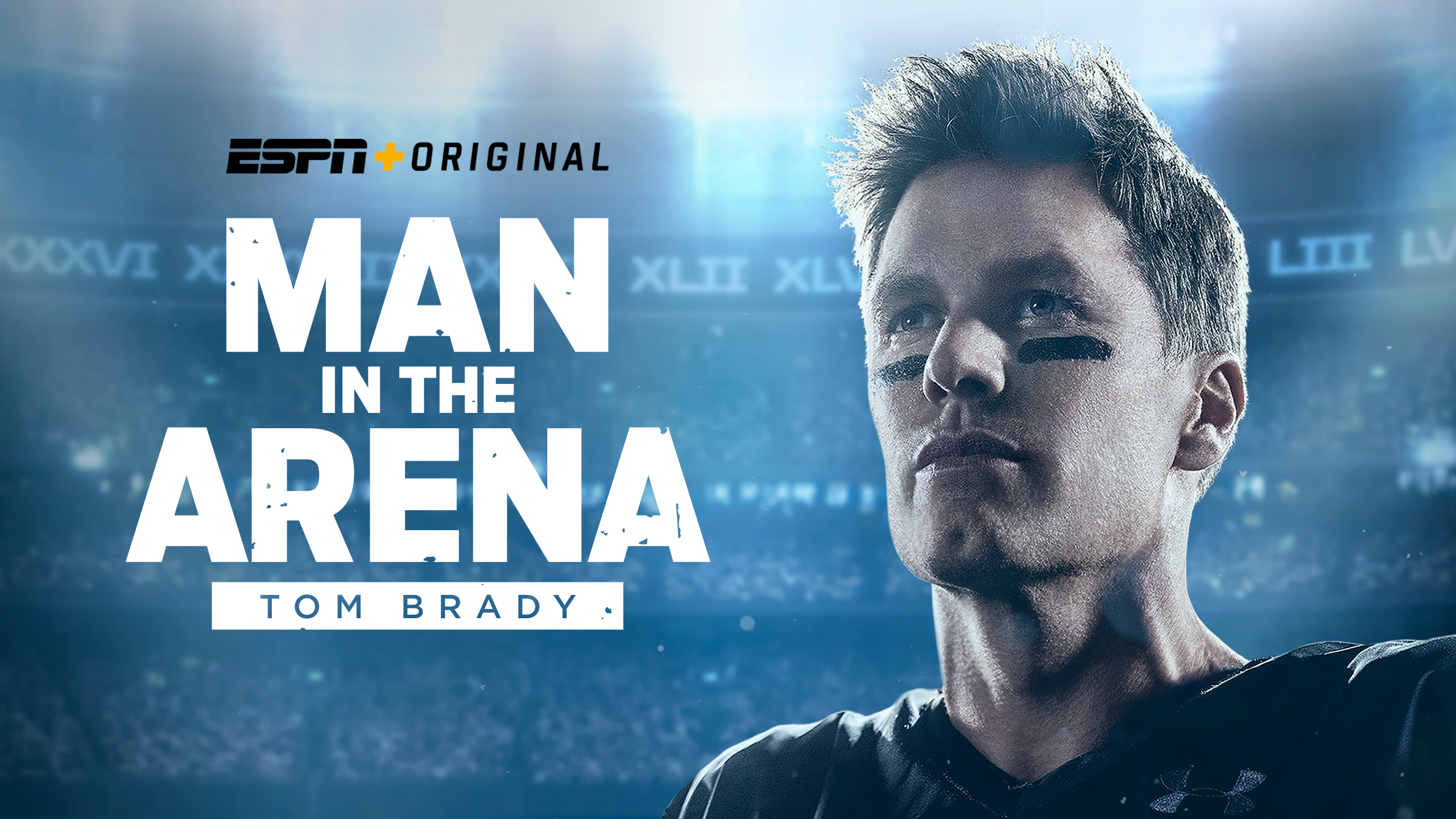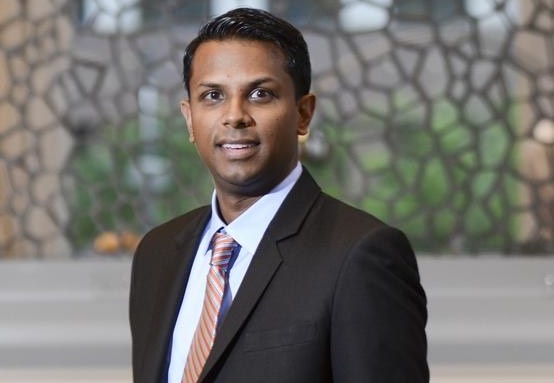Religion of Sports Takes Big Swings in Sports Documentary Genre
CEO Ameeth Sankaran says Emmy-winning company is focused on delivering impactful sports documentary fare

The smarter way to stay on top of the multichannel video marketplace. Sign up below.
You are now subscribed
Your newsletter sign-up was successful
Emmy-winning production company Religion of Sports has been at the forefront of the hot sports documentary genre, which has generated viewership momentum and media buzz over the past few years through such shows ESPN’s The Last Dance, Netflix's Formula 1: Drive to Survive and and more recently, Apple TV Plus' They Call Me Magic.
The company, founded in 2017 by NFL quarterback Tom Brady, NFL Hall-of-Famer Michael Strahan and filmmaker Gotham Chopra, has developed several sports documentaries for distributors across multiple platforms, including Greatness Code (Apple TV Plus), Simone versus Herself (Facebook Watch) and Passion Play (Showtime). Last month won a 2022 Sports Emmy for its ESPN Plus documentary series Man In the Arena: Tom Brady.
The company announced Monday (June 6) that it has secured $50 million in a Series B fundraising round with the intent to develop new intellectual property that will potentially extend beyond sports.
“We’ve seen a growing demand for sports storytelling across media avenues, a demand that Religion of Sports continues to meet, but we’re ready and eager to expand into new territories and solidify ourselves as an all-encompassing media powerhouse,” Religion of Sports CEO Ameeth Sankaran said in a press release. “We are excited to expand our mission on a larger scale while enabling our talent partners to tell more expansive versions of their story.”
Sankaran spoke with Multichannel News prior to the funding announcement to discuss the company’s sports documentary production strategy. An edited version of the interview appears below.
MCN: What’s the best approach to creating a successful sports documentary – to focus on a particular athlete or to focus on a particular sport or issue?

Ameeth Sankaran: What we’re seeing is that there is definitely a formula. You can take a high-profile athlete or talent that everybody knows in some way and bring some level of depth to that story and tell it either holistically over time or tell it with a particular angle, because there’s already a built-in audience. That I think is an easier sell because ultimately the networks are looking for ways to drive subscriptions and eyeballs. When you don’t have that character who has that built-in audience and that background, then it becomes more important to lean into the story. We did a documentary with LeBron James and his company (SpringHill) called Shut Up and Dribble, and it was built around how basketball has been at the center of social change for the last 50 years. It’s all about providing a point of view or providing a unique take on the issue.
The smarter way to stay on top of the multichannel video marketplace. Sign up below.
MCN: What elements do you look for when developing a sports documentary?
AS: You have to consider commercial viability and impact, and they're usually related. When you have a chance to profile Steph Curry or Tom Brady, are you going to get something out of them that's unique and different and that people care about? That’s the first set of questions. When we have other stories that we were talking about, like looking at the steroids era, or we're talking about topics like the business of sports, then it's more thinking about what the angle is, has it been done before, what’s interesting about the timing right now and what impact is it going to create. Then it gets even deeper down on those conversations.
MCN: Have you run across any documentary projects that turned out differently than how you envisioned it from the start?
AS: That's a good question. When we did the Simone vs. Herself documentary for Facebook Watch we started it pre-pandemic. It started in 2019 with a lead up to the 2020 Olympics, and then of course the pandemic happened. The whole production went dark and there was a big question around whether or not the Olympics would come back. Then as it became clear that the Olympics would happen in Tokyo in 2021 we started filming again with Simone, and the story completely pivoted. It turned into more of a conversation around what the world looked like now and how that impacted Simone mentally. If you watch episodes one through five you can kind of see what was coming in six and seven, which was a lot of issues that she and the team collectively was dealing with. The people who have watched it found that extremely compelling because of how raw and emotional she was in [episodes] six and seven about what she was going through and how she was. I think that was really surprising – not from the point of whether or not it resonated with viewers because I think it absolutely did – but how and where the story took us, which was very compelling.
MCN: Do you get nervous that the genre is starting to become oversaturated given the number of documentaries across multiple platforms?
AS: Yes … we’re definitely in a competitive environment. If it's not already upon us, there may soon be a time where there is that saturation point. It then becomes more incumbent on providers to ask why this documentary is different or why it helps drive change in the marketplace.
MCN: Would you look at developing other projects outside of sports?
AS: We’ve had conversations with people outside of sports. What we’ve learned is that the characteristics that make phenomenal athletes and teams are irrespective of industry. So when you think about lifestyle, business, music or food, the characteristics that drive those people to success are similar, and that’s really compelling. I think it goes back to again what’s differentiating in the market and how we can lean into what we do really well.
R. Thomas Umstead serves as senior content producer, programming for Multichannel News, Broadcasting + Cable and Next TV. During his more than 30-year career as a print and online journalist, Umstead has written articles on a variety of subjects ranging from TV technology, marketing and sports production to content distribution and development. He has provided expert commentary on television issues and trends for such TV, print, radio and streaming outlets as Fox News, CNBC, the Today show, USA Today, The New York Times and National Public Radio. Umstead has also filmed, produced and edited more than 100 original video interviews, profiles and news reports featuring key cable television executives as well as entertainers and celebrity personalities.

